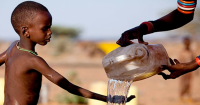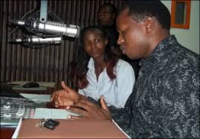By Celia Petty, Director of Operations at EfD
 Evidence for Development (EfD) has recently moved from central London to the Walker Institute – many thanks to everyone for your warm welcome.
Evidence for Development (EfD) has recently moved from central London to the Walker Institute – many thanks to everyone for your warm welcome.
We are a non-profit research organisation with a small core staff in the UK and associates in Uganda and Malawi. We work on livelihoods analysis, developing practical data collection methods and software modelling tools that are designed to provide policy-relevant information to decision makers. To support this work we also develop teaching and e-learning materials which are currently used for post-graduate training in the UK and overseas.
 EfD’s mission is to facilitate well-informed decision making, based on the best possible evidence. It’s increasingly recognised that in the complex and rapidly changing environment of the 21st century, this requires close collaboration across and between disciplines. And this is the reason for our move.
EfD’s mission is to facilitate well-informed decision making, based on the best possible evidence. It’s increasingly recognised that in the complex and rapidly changing environment of the 21st century, this requires close collaboration across and between disciplines. And this is the reason for our move.
It was clear from our first conversations with Prof. Ros Cornforth less than 2 years ago, that there was a close match between the Walker Institute’s mission and our own. The Institute’s focus on harnessing the knowledge derived from climate science, to better understand the impact of climate change on human society is critically important. We hope to contribute to this work through our deep knowledge of rural economies in Africa, our expertise in livelihoods modelling and our innovative use of information technology.
We are currently working with colleagues in Reading on the DfID/NERC HyCRISTAL project in East Africa. This project aims to reduce the high levels of uncertainty in climate projections in the Lake Victoria basin sufficiently to improve the effectiveness of future development planning. EfD will be leading work to better understand the nature of current livelihood vulnerability in the region, and incorporating this information into models of climate change impacts. Field work is starting in Uganda, where we will begin to assemble data to populate the models and start the process of tracking change over time.
We are also collaborating with Walker Institute colleagues to develop research and teaching initiatives in health, nutrition and social protection. We will be extending our e-learning tools to support these initiatives, linking wherever possible with other international distance learning programmes. Another great advantage of being based on campus is the opportunity to integrate with, and share interests and skills with researchers in computer science – initially in manipulating the data sets we’re collecting; subsequently in analytics and data mining of those data sets.
Finally, we have an active intern programme. The aim is to provide meaningful experience that contributes both to the student’s own career development and to EfD’s objectives as a development organisation. We will be posting information on intern opportunities as these arise.
We look forward to meeting more colleagues across the University as these projects progress.




 lop seasonal groundwater status reports which will be linked into the
lop seasonal groundwater status reports which will be linked into the